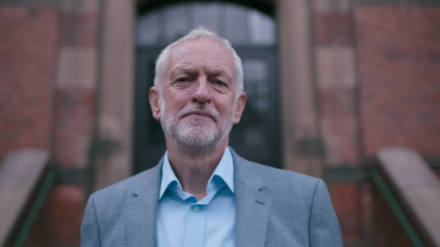
The argument for a second referendum offers a tantalising promise of redemption from political chaos. But those in Labour who champion a second referendum and prioritise the economy over democracy should be wary. The liberal market settlement of four decades prioritised economic measures over social and democratic ones and drained the life out of politics. The market prevailed; culture and society were neglected. Millions of voters believed no one was listening to them. Brexit was the consequence.
Back in the 1980s, capitalism was liberated from national government and national democracy. In the view of German thinker Wolfgang Streeck, “markets had been embedded in states, states now became embedded in markets”. A trans-partisan political elite supported opening up national markets and integrating them into increasingly global markets. Its liberal right wing controlled the technical and economic sphere, while its liberal left wing controlled culture.
National sovereignty was treated as an obstacle to economic freedom. Globalisation promoted the corporation over the nation state and the market over democracy. The EU played its role. It altered the balance of power within the British constitution, away from parliament and toward the judiciary. The Lisbon Treaty made the liberalising of the economy and society foundational to the constitution of the EU.
Third Way social democracy was a product of this capitalist modernity. Its pursuit of an open society could not disguise the declining solidarity of labour, the spread of market transactions in society, and the destruction of social protection and local cultures.
Across Europe, voters accused liberal-minded elites of abandoning them to global capital and failing to safeguard national sovereignty. The struggle to defend democracy was redefined by populism as a national struggle to defend national institutions and cultures. The forces now driving political change are toward more nation-statism and smaller scale units of governance.
The vote to leave was a vote for national sovereignty against the trans-partisan elite. What constitutes a people is sovereignty, and the authority and tradition that give it meaning. The widespread sense that it has been lost is a symptom of the deep currents reshaping western democracies. Prioritising the economy over democracy and ignoring the question of sovereignty deepens the existential crisis.
Those on the left who dismiss sovereignty as merely ‘notional’, or as a nostalgic delusion for an impossible national autonomy, are making a mistake. Sovereignty, and the authority and tradition that give it meaning, is essential for a democracy and the social order that secures human freedom. The left’s indifference to nationhood and questions of belonging casts it as the problem, not a solution. And the prevalence of modern identity politics, which divides one group from another in a hierarchy of moral value, offers no shared sense of how people can live together.
At the heart of the British constitution has been the idea of sovereignty as a balance of power. Democracy is a continuous negotiation between interests in order to resolve conflict and reach agreement on the common good. Sovereign power is not the enforcing of one interest over another, but is located in the process of negotiating a balance of power between them. It is contingent and not codified or absolute, and so it is reliant upon robust institutions and on an authority born of tradition, which invests them with legitimacy. Democratic politics is about achieving a balance of power: it is always paradoxical and involves the compromise of give and take.
Brexit has undermined parliamentary sovereignty and so destabilised the democratic balance of power. The European Communities Act 1972 that gave statutory effect to Britain’s membership of the Common Market introduced the principle of the sovereignty of the people into the British constitution. The constitutional expert Vernon Bogdanor argues that the referendum as a democratic instrument provides the people with protection from a sovereign parliament on major constitutional changes that people do not want. In 2016, for the first time in British history, popular sovereignty overruled the wishes of parliament. The electorate instructed parliament to leave the EU.
The legitimacy of parliamentary sovereignty rests upon the sovereign decision of the people. To attempt to evade this constitutional obligation either through amendments that undermine Britain leaving the EU or by a second referendum will be to assert a parliamentary absolutism. It will be to represent the interests of the middle classes and elites that support Remain. It would be to choose conflict and political domination over the restoration of a balance of power and the pursuit of national unity. For Labour to pursue either course of action will hasten the end of its historic role as the party of the labour interest.
Labour lost the election in 2010 because growing numbers of lower middle class and working class voters experienced the liberal economic settlement as neither in their interest nor in the national interest. It has not won an election since. If Labour is to be the party of the labour interest, it must also be the party of the nation state. Internationalist and open to the world but protecting working people and prioritising the national everyday economy where the majority work. Instead of simply being anti-authoritarian, it must offer alternative democratic models of authority. And instead of aligning itself with identity politics, it needs a shared common culture of mutual obligations in which all citizens are of equal value. Third Way politics erased Labour’s traditions. It needs to recover them in order to restore democratic sovereignty and build a national unity.
Jonathan Rutherford is an academic and part of the Blue Labour movement.




More from LabourList
Nudification apps facilitate digital sexual assault – and they should be banned
Diane Abbott suspended from Labour after defending racism comments
Labour campaign groups join forces to call for reinstatement of MPs